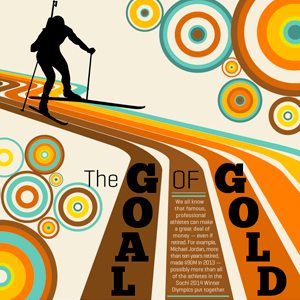Bullet Club
Banned
EA Has To Get Rights To "Each And Every Individual Athlete" For NCAA Return, Says Lawyer
In case you haven't heard, the NCAA is on its way to letting players make money off of their own likenesses, something the organization has been against since the NCAA first started being a thing. The rule against paying athletes combined with a lawsuit against the NCAA in 2014 (which claimed that NCAA games illegally profited off of students' identities) has kept EA from making any NCAA games since NCAA Football 2014.
Now that athletes can be paid, EA can start making NCAA games again, right? Well, yes, but... there's a whole lot of athletes that they need to pay and there's no single organization that can grant EA the rights to all of them.
"If Electronic Arts decides to bring back a college sports video game, it will hit a roadblock, because it has to get permission from each and every individual athlete, since there is no larger union/organization to negotiate with," said Video Game Lawyer Stephen McArthur in a statement.
The NBA, NFL, MLB, and all other professional sports organizations have players' unions that video game companies can make deals with. These deals give them the ability to have every single athlete as part of the game. No such organization exists for NCAA players. Unless that changes, that means that EA would have to work out deals with every single athlete individually. Since there are around 30,000 athletes in Division I NCAA football alone, that seems like a tall order.
To give an example that long-time video game players might be familiar with, old NBA games did not feature Michael Jordan because he chose not to take part in the National Basketball Players Association's licensing agreement. NBA games had the rights to all the other players, but not Michael Jordan -- the only games that did feature Jordan, such as NBA Street and Space Jam, had to make deals directly with him.
For the NCAA, EA would have to do that for literally everyone. That's not the only issue. McArthur says that EA would need to get University logo rights, conference logo rights, music rights, and more.
"There are so many different rights owners involved in making collegiate athletics video games," McArthur said. "An organization will need to spring into effect to aggregate the negotiating for the rights of each player so that video games don't need to independently negotiate the rights of hundreds or even thousands of separate players."
It's likely that a union will eventually sprout up to handle these issues. Until that happens, dreams of an NCAA game will most likely be delayed.
Source: The Gamer
In case you haven't heard, the NCAA is on its way to letting players make money off of their own likenesses, something the organization has been against since the NCAA first started being a thing. The rule against paying athletes combined with a lawsuit against the NCAA in 2014 (which claimed that NCAA games illegally profited off of students' identities) has kept EA from making any NCAA games since NCAA Football 2014.
Now that athletes can be paid, EA can start making NCAA games again, right? Well, yes, but... there's a whole lot of athletes that they need to pay and there's no single organization that can grant EA the rights to all of them.
"If Electronic Arts decides to bring back a college sports video game, it will hit a roadblock, because it has to get permission from each and every individual athlete, since there is no larger union/organization to negotiate with," said Video Game Lawyer Stephen McArthur in a statement.
The NBA, NFL, MLB, and all other professional sports organizations have players' unions that video game companies can make deals with. These deals give them the ability to have every single athlete as part of the game. No such organization exists for NCAA players. Unless that changes, that means that EA would have to work out deals with every single athlete individually. Since there are around 30,000 athletes in Division I NCAA football alone, that seems like a tall order.
To give an example that long-time video game players might be familiar with, old NBA games did not feature Michael Jordan because he chose not to take part in the National Basketball Players Association's licensing agreement. NBA games had the rights to all the other players, but not Michael Jordan -- the only games that did feature Jordan, such as NBA Street and Space Jam, had to make deals directly with him.
For the NCAA, EA would have to do that for literally everyone. That's not the only issue. McArthur says that EA would need to get University logo rights, conference logo rights, music rights, and more.
"There are so many different rights owners involved in making collegiate athletics video games," McArthur said. "An organization will need to spring into effect to aggregate the negotiating for the rights of each player so that video games don't need to independently negotiate the rights of hundreds or even thousands of separate players."
It's likely that a union will eventually sprout up to handle these issues. Until that happens, dreams of an NCAA game will most likely be delayed.
Source: The Gamer

